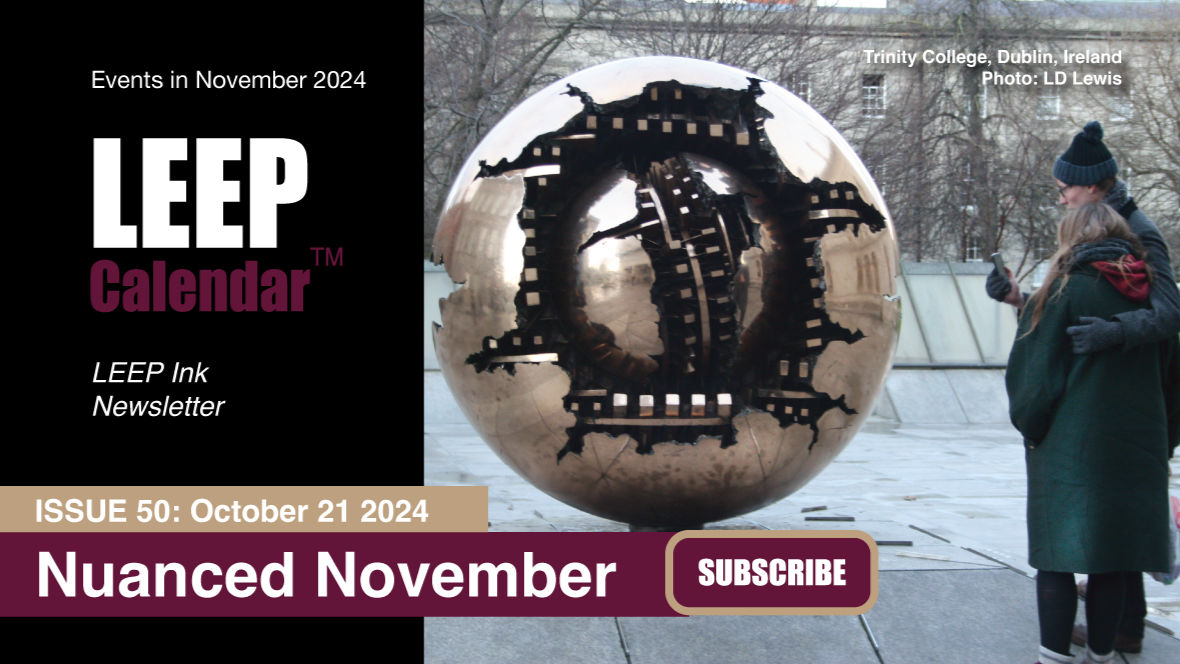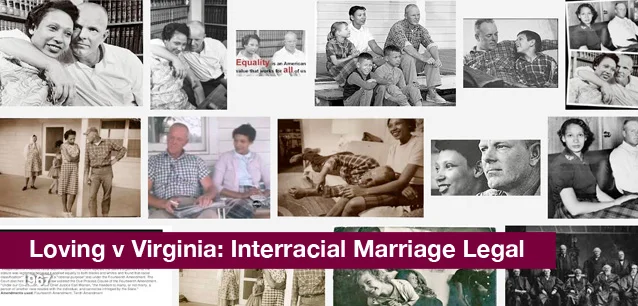 AD
AD
Today is: November 25
Scroll to explore events active on this date.
Additional Events on LEEP
LEEP INK FEATURES

Nuanced November 2024
November is the start of the holiday season in many parts of the world. It is a time for family, football, food, shopping and decorating, particularly in the Christian and Jewish world, leading to Christmas and...

December's Gift
Events in December 2024. Well, we made it to December. December is the holiday season, particularly in Western nations, where Christianity and Judaism are the faiths most common in the nation's past. ...

August is Appropos
A toddler playing in the fountain at a park in Santa Fe, New Mexico—Photo LD Lewis. In August, we live through the Dog Days of Summer. It's hot and often humid, and those ...
About the Loving v Virginia Trial of 1967
Legal , Politics
Civil Rights , United States
Ends: Jun 12, 2025
DESCRIPTION:
June 12, 1967, is the day Americans finally became free to marry whomever they wanted, regardless of race, origin, or faith, due to the landmark decision of the United States Supreme Court in Loving vs. Virginia. Previous interracial marriage laws were now void.
Mildred Loving, a black woman, married Richard Perry Loving, a white man. In Virginia, such a union was deemed criminal due to the anti-miscegenation statute (that a white person cannot marry a black person), which resulted in Richard Loving being sentenced to a year in prison. The couple was married in Washington, DC, to bypass the Racial Integrity Act of 1924. However, the couple returned to Central Point, Virginia, where the police raided their home while the Lovings were sleeping.
In the initial trial, Leon M. Bazile reiterated the 18th-century meaning of race. On January 6. 1959, the Lovings were sentenced to a year in prison after pleading guilty. A 25-year sentence was suspended, providing the couple left Virginia, so they moved to the District of Columbia.
In 1964, Lovings wrote to Attorney General Robert Kennedy, who forwarded their case to ACLU (American Civil Liberties Union). The civil rights group filed a brief stating that the statutes contradicted the Fourteenth Amendment. On this day in 1967, the US Supreme Court found that the previous conviction was invalid and discriminatory due to the Due Process and Equal Protection Clauses of the Fourteenth Amendment.
VIDEOS
Currently, this event does not have supporting videos.
SUPPORTING DOCUMENTS
Currently, this event does not have supporting documents.
ADDITIONAL IMAGES
Currently, this event does not have supporting images.
Where would you like to go now?
 AD
AD


/footer-logo.svg)
